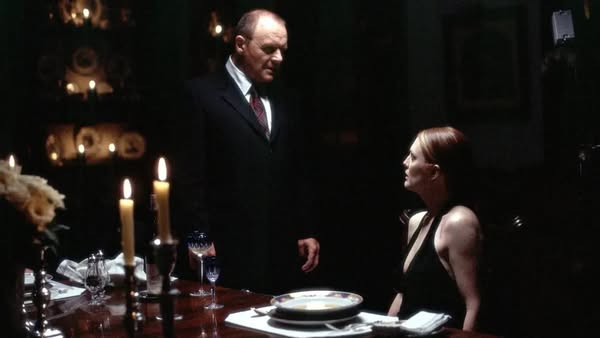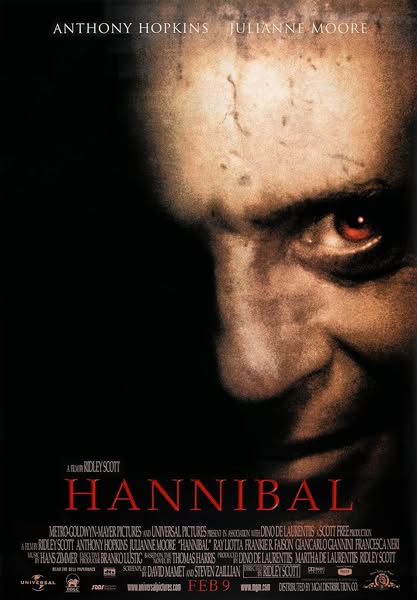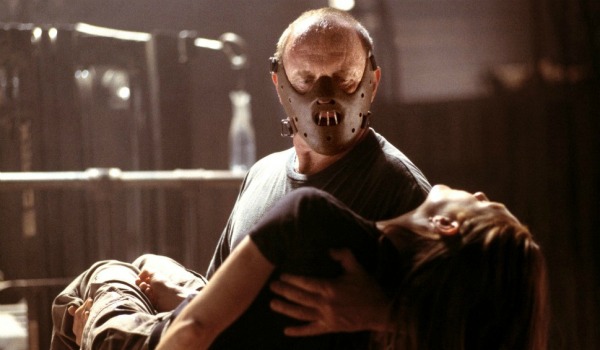Hannibal (2001)

“Hannibal,” directed by Ridley Scott and released in 2001, is a psychological horror thriller that serves as a sequel to the acclaimed film “The Silence of the Lambs” (1991). Based on Thomas Harris’s novel, the film continues the story of Dr. Hannibal Lecter, portrayed by Anthony Hopkins, and former FBI agent Clarice Starling, played by Julianne Moore.
Set several years after the events of its predecessor, “Hannibal” explores themes of obsession, revenge, and the complex dynamics between its two central characters. After escaping from captivity, Dr. Lecter lives in Italy under a new identity. However, his past catches up with him when Mason Verger (Gary Oldman), a former patient who survived an encounter with Lecter, seeks revenge for the horrific scars he bears from their encounter.

Clarice Starling, now a troubled FBI agent, is drawn back into the investigation when Lecter resurfaces. As the story unfolds, the film delves into the psychological tension between Lecter and Starling, showcasing their cat-and-mouse dynamic. Clarice is portrayed as a strong yet vulnerable character, facing both external pressures and her own inner demons.
Anthony Hopkins delivers a chilling performance as Lecter, adeptly blending charm with menace. Julianne Moore steps into the role of Clarice with a fresh perspective, bringing depth and nuance to the character while maintaining the spirit of Jodie Foster’s original portrayal.

The film is visually striking, with Ridley Scott’s direction accentuating the dark and atmospheric tone. The cinematography captures both the elegance of Lecter’s world and the grim realities of his actions. The score, composed by Hans Zimmer, heightens the tension and emotional weight of key scenes.
“Hannibal” received mixed reviews from critics, with some praising its ambition and performances, while others found it less compelling than its predecessor. The film is notable for its graphic violence and controversial content, pushing boundaries in the horror genre.

In conclusion, “Hannibal” is a provocative and unsettling exploration of the relationship between good and evil, love and obsession. With its strong performances, striking visuals, and psychological depth, it remains a memorable entry in the Hannibal Lecter saga, appealing to fans of psychological thrillers and horror alike.











